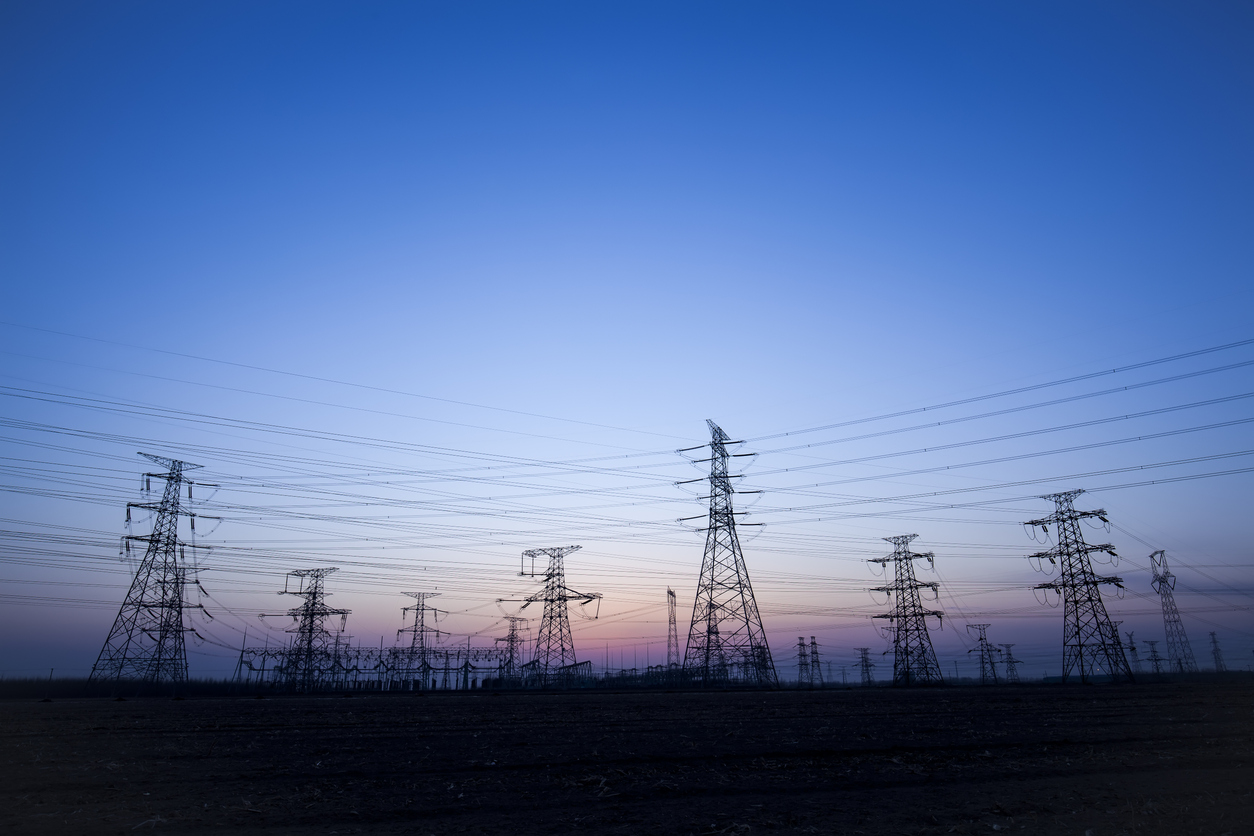Interstate transmission development is fragmented by local utility service territories. Parochial interests are impeding large-scale transmission projects, which in turn is slowing wind and solar deployment. The combination of discriminatory state laws and Federal Energy Regulatory Commission (FERC) transmission planning rules shield utilities from competition within their local service territories and induce them to focus on developing small-scale local projects. These protectionist policies reinforce an anachronistic approach to transmission planning that is failing to develop the regional transmission necessary to effectively decarbonize the power sector and mitigate the impacts of extreme weather. Our Catalyzing Transmission Development work includes a law review article that details the history of transmission regulation and regulatory filings that urge FERC to address anti-competitive utility conduct.
Documents
- Comment on FERC’s Proposal to End Utility Self-Funding of Interconnection-Related Transmission Upgrades. Rebuts utility arguments that federal law entitles them to specific transmission investment opportunities and argues that FERC’s proposal is consistent with long-standing goals of promoting competition and protecting consumers (Oct. 2024)
- Utilities’ hidden clean energy tax is at the heart of our energy challenges. Explains how FERC proceedings about transmission upgrades are critical for shifting utility incentives and pushing the industry to tackle transmission expansion (Oct. 2024)
- Protest of PJM Utilities’ Amendments to the Consolidated Transmission Owners Agreement. Argues that the PJM utilities’ proposal would undermine PJM’s independent decisionmaking processes and violates federal law (Jul. 2024) (Reply to PJM Utilities’ Response, Sep. 2024; Reply to Deficiency Letter Responses. Oct. 2024)
- Request for Rehearing and Clarification about FERC’s Long-Term Regional Transmission Planning Rule (Order No. 1920). Urges FERC to mandate that utilities file cost allocation proposals agreed to by state regulators and suggests that FERC find that its transmission planning rules are tied to its duty to prevent unduly discriminatory transmission service (Jun. 2024)
- Profiteering Hampers U.S. Grid Expansion. Explains that utilities’ financial incentives are not aligned with large-scale transmission development and argues that reforms should circumvent utility-controlled development processes rather than attempt to reform them (Mar. 2024)
-
Response to Utility Group’s Filing in the Transmission Planning Rulemaking Docket. Argues that while the utility group’s filing is too late for consideration in this proceeding it raises important questions about the institutions planning transmission expansion. (Mar. 2024)
-
Comment on the NARUC-FERC Task Force. Suggests that FERC and state utility regulators discuss regional transmission governance at an upcoming meeting (Jan. 2024)
- Replacing the Utility Transmission Syndicate’s Control. Explains why regional governance of interstate power markets and transmission service has stagnated, details how the power industry changes its the rules, shows that entrenched power wields too much influence and formal authority over regional transmission networks, and outlines a path for reform. (Nov. 2023)
- Post-Technical Conference Comments on FERC Oversight of Transmission Rates. Urges FERC to expand utility disclosures in planning processes and rate proceedings and develop a new approach to reviewing utility expenditures that enables transmission customers to viably challenge transmission rates. (March 2023)
- Supplemental Reply Comments on FERC’s Transmission Planning Rule. Argues that FERC’s proposed rule does not violate the “Major Questions Doctrine” and shows that FERC has approved planning processes that contain elements similar to those in FERC’s proposal (Dec. 2022)
- Pre-Technical Conference Comments on FERC Oversight of Transmission Rates. Shows that FERC has minimized its direct oversight of transmission rates and proposes new oversight mechanisms designed to protect consumers from inefficient transmission investments. Also, Post-Conference Filing with evidence from other dockets. (Oct. 2022)
- Brief Supporting Clean Energy in the Southeast. Explains why FERC’s regulation of interstate transmission service is necessary to counteract utilities’ market power, highlights the key principles underlying FERC’s Open Access transmission rules, and outlines how FERC’s approval of the Southeast Energy Exchange Market (SEEM) violates Open Access principles. (Sept. 2022)
- Comment on FERC’s Transmission Planning Proposed Rule. Argues that FERC’s proposal to end competitive transmission development processes and replace them with joint ventures between investor-owned utilities (IOU) will not benefit consumers and suggests three alternatives to FERC’s proposal. (Aug. 2022)
- Can FERC Convince Utilities to Build Modern Transmission Systems? Explains why utilities often oppose large-scale transmission development, summarizes key aspects of FERC’s proposed rule on transmission development, and suggests modest improvements to FERC’s proposal (May 2022).
- Comment on FERC’s inquiry into its Uniform System of Accounts. Argues that the Commission’s approach to utility trade association dues has not kept pace with the industry’s evolution. It should include utility expenditures aimed at influencing public opinion on utility regulation and adopt a broad understanding of utility efforts to influence public officials and the public (Feb. 2022).
- Reply Comment on FERC’s Transmission ANOPR. Urges FERC not to abandon competitive transmission development and suggests that competition can help align transmission rates with reliability (Nov. 2021).
- Initial Comment on FERC’s Transmission Advanced Notice of Proposed Rulemaking (ANOPR). Details FERC’s extensive authority to remedy utility conduct that is “unduly discriminatory,” shows that FERC’s proposed planning reforms fit within that authority, and outlines how FERC can review the prudency of certain utility transmission investments (Oct. 2021).
- To catalyze transmission development, end the utility protection racket. Op-ed by Ari Peskoe in Utility Dive (Feb 2021).
- Is the Utility Transmission Syndicate Forever? Reviews FERC regulation of transmission operations and planning and argues that investor-owned utilities are impeding large-scale transmission development that is necessary for the clean energy transition (Jan. 2021).
- ISO-NExit: Exploring Pathways for a Utility’s Withdrawal from New England’s Regional Transmission Organization. Summarizes the legal process for a utility’s withdrawal from ISO-NE, speculates how FERC might block the withdrawal, and highlights several complexities and uncertainties about post-withdrawal operations (Mar. 2020).

